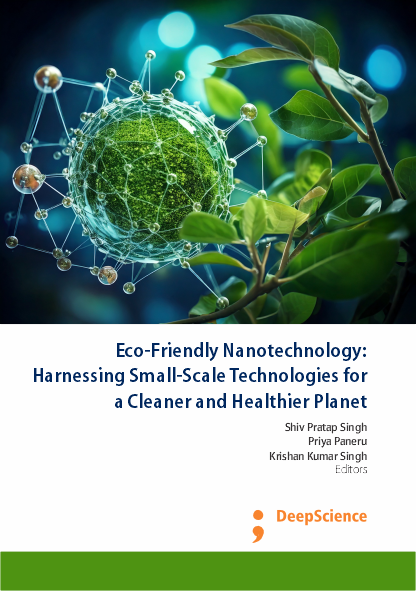Development and application of eco-friendly nanomaterials in plant science for sustainable agriculture
Synopsis
Utilizing nanotechnology in plant science has become a viable approach to boost crop yields, enhance soil health and encourage sustainable farming methods. The incorporation of environmentally sustainable nanomaterials in plant science has become a revolutionary method for sustainable agriculture, plant protection and environmental cleanup. Green nanotechnology utilizes biogenic synthesis techniques that incorporate plant extracts, microbial systems and biodegradable polymers, thereby reducing the environmental impact linked to traditional physicochemical nanoparticle creation. These nanomaterials demonstrate increased bioavailability, enhancing nutrient absorption, promoting plant development and providing resistance against phytopathogens. Moreover, they facilitate soil remediation and water purification via pollutant adsorption and catalytic breakdown processes. Nanoscale biosensors provide real-time assessment of plant health by identifying biotic and abiotic stressors with exceptional sensitivity and specificity. Despite their potential applications, concerns about nanoparticle bioaccumulation, phytotoxicity and long-term ecological interactions require thorough risk assessments. Future research must concentrate on clarifying nano-bio interactions and refining nanomaterial formulations for precision agriculture. The current evaluation emphasizes the progress, obstacles and potential of environmentally sustainable nanotechnology in plant science for the management of sustainable agroecosystems.
Keywords: Nanomaterials, biosynthesis, eco-friendly, plant science, green nanotechnology.













